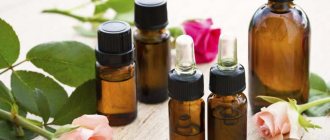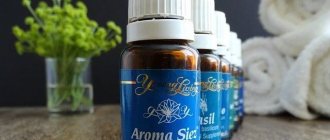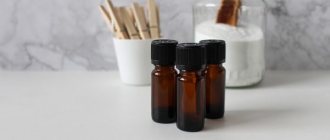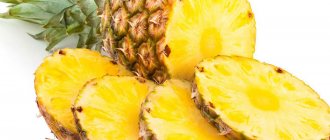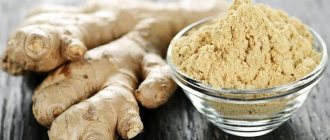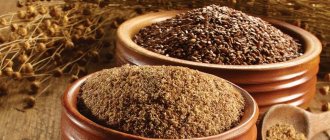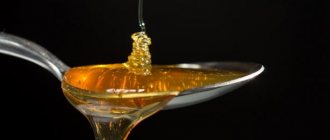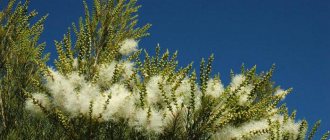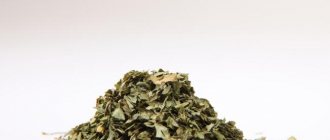Essential oils are true natural cures for a wide variety of physical and mental illnesses. They help maintain health and heal from many ailments. In addition, they are widely used in cosmetology, massages, added to shampoos, creams, dripped into aroma lamps and on heaters in baths (See “Essential oils. Table of uses and properties”).
By the way! Here you can read how to make an aroma lamp at home.
There is a whole science that studies essential oils, compiles tables of use and heals people with the power of nature.
Various parts of plants are used for production. Aromatic hydrocarbons are produced by:
- water distillation;
- cold pressed;
- extraction;
- through the use of carbon dioxide.
The production method depends on the plant and is chosen in such a way as to make the most efficient use of raw materials and preserve all useful substances. For example, citrus zest is usually cold pressed, while lavender is water distilled. Read more about essential oils and how to obtain them in our special section. Below you will find out why essential oils are especially useful. The application table shows the main medicinal and cosmetic properties of each.
Tangerine essential oil
Let's start with tangerine oil - it can be safely called sunny for its special, beloved aroma and for its influence on our mood. The use of this oil in aromatherapy is very widespread and is valued for its talent to balance emotions, and it cannot be called calming, it is rather relaxing. Tangerine essential oil is very good to use in the evening.
As for cosmetology, tangerine essential oil is included in many protective and tonic skin and hair care products. Try adding a few drops of tangerine oil to your hand cream, especially in the cold season, this will help get rid of such a nuisance as flaking of the skin of your hands from frost. This essential oil will also improve the effect of any massage - in this form it will show its leveling and smoothing properties for our skin. Taking a bath with literally 3-5 drops of this tangerine “elixir” will give you the feeling of a real SPA procedure.
The use of aromatherapy in cosmetology
Essential oils in cosmetology for women are used not only for general nutrition of the dermis, but also to solve any specific problems. Aromatherapy at home with esters and a moisturizing base oil achieves a complex effect. A biological effect will be initiated in the deep layers of the skin, and at the same time a powerful influx of vitamins, microelements and other nutrients will be created.
Aroma mixtures are of particular value due to the special form of the substances that are included in their composition. This form is most favorable for absorption by the skin without any additional biological transformations. The result of this is an effective effect on each layer of the skin, which allows you to achieve a good result.
Absorption of the aroma oil by the surface of the skin occurs within a few minutes. In this case, individual molecules even reach the vascular layer. Almost all essential oils are antioxidants of natural origin. This will protect your skin from oxidation and free radicals, keeping it looking young longer.
Another property of essential oils is their ability to cleanse the skin at the cellular level. Rapidly penetrating active substances force the cell to activate its metabolism, thereby achieving rapid removal of waste and toxins.
Cosmetological effect of esters
We have collected the most common problems and types of oils used in cosmetology (recipes) into a single table.
| In what case does it apply? | Name of essential oil | |||||
| Bergamot | Grapefruit | Lavender | Mint | Rosemary | Eucalyptus | |
| Skin is dry and painful | Yes | |||||
| Skin is excessively oily and shiny | Yes | Yes | Yes | |||
| It is necessary to slow down skin aging | Yes | Yes | ||||
| There is acne, pimples, rashes | Yes | Yes | Yes | Yes | ||
| Clogged pores need to be cleared | Yes | Yes | ||||
| The vascular network appears | Yes | Yes | Yes | |||
| Restoring natural skin tone | Yes | Yes | ||||
| Recovery after shaving | Yes | |||||
| Herpes virus | Yes | Yes | ||||
| Allergic rashes | Yes | Yes | ||||
| Excessive pigmentation | Yes | |||||
| Cellulite | Yes | Yes | Yes | |||
| Softening rough skin | Yes | Yes | Yes | |||
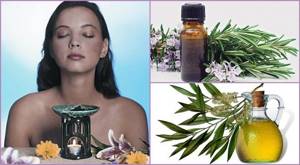
To avoid harm to the body, use essential oil according to the instructions for use
Lemon essential oil
Lemon essential oil is a natural herbal tonic, it is better to use it in the morning - then your awakening will be brighter and... in the literal sense of the word, more cheerful. The bitter, bright notes of this oil will set you up for productive activities. It is often used to quickly cleanse a room of unpleasant odors, and with its addition, compresses are made for headaches.
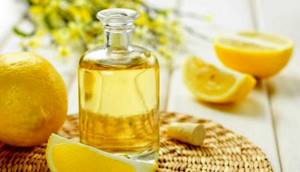
For cosmetic purposes, lemon oil, or rather lemon peel oil, is used in skin whitening creams and lotions; it will help in removing swelling and small spider veins. Cosmetic products containing this oil are suitable for the care of oily skin and are used in the fight against enlarged pores. Massages and baths with lemon essential oil help improve skin firmness and elasticity.
Tea tree essential oil
One of the most popular essential oils, both in aromatherapy and cosmetology, is tea tree oil. Its aroma can be called “cool” - it has a tonic, so to speak, “awakening and stimulating” effect. The bitter and at the same time spicy notes of tea tree will come in handy in the first half of the day. If you use it in an aroma lamp indoors, you can protect yourself from viral infections, as it has a disinfecting effect.
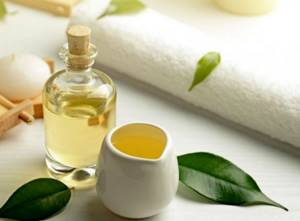
Tea tree essential oil is, firstly, a strong antiseptic; it is used in the complex treatment of cuts and burns, bruises and sprains. In addition, it will become a real assistant in the care of oily skin and hair, providing a general strengthening effect on them, eliminating dandruff and excessive hair loss. Try adding five drops of this oil (per serving) to your shampoo or hair conditioner. It is this oil that cosmetologists use in complexes against irritation and acne.
Applications and properties
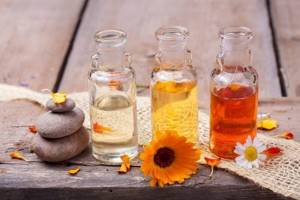
Essential oils are most widely used in medicine and cosmetology. Oils extracted from different plants have different properties, such as:
- cleansing (lavender, geranium, orange, rosemary, sage);
- tonic (cloves, ginger, fir, mint, nutmeg);
- stimulating (thyme, basil, bergamot, jasmine, sandalwood, rose);
- harmonizing (jasmine, geranium, mandarin, sandalwood, orange);
- strengthening (melissa, lavender, rosemary, mint, cedar, verbena);
- refreshing (lemon, fir, mint);
- antiviral;
- stimulating (black pepper, coriander, cloves, juniper);
- painkillers;
- soothing (geranium, dill, vanilla, chamomile);
- anti-inflammatory;
- antimicrobial;
- regenerating.
The use of essential oil compositions is effective in the treatment of diseases of the upper respiratory tract, cardiovascular system, and gastrointestinal tract. Some esters help heal bruises, cuts, and reduce heartburn.
Aroma oils are especially often used to combat allergies, normalize sleep, psycho-emotional state, improve performance and increase attentiveness.
Vanilla essential oil
This oil is an excellent aroma for a cozy home, for its warm and bright atmosphere. It will perfectly set you up for tenderness and give you a feeling of pleasant relaxation after a busy or hard day. This scent will appeal to both adults and children. With all its relaxing properties, it will help you get ready or concentrate in the upcoming task.
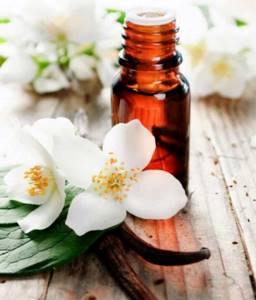
As for the field of cosmetology, here too vanilla oil has found its place, although it is not very widespread, but it, just like our favorite and healthy chamomile, has a beneficial effect on our skin - vanilla relieves irritation and improves skin color, fights rashes and gently softens the epidermis. It is often used in baths for hands and damaged heels.
Rose essential oil
One of the most popular essential oils is rose oil, especially tea rose oil, since it concentrates the maximum amount of aroma in its petals. Complex, bitter, but at the same time with notes of honey and the slightly cold smell of these flowers has a beneficial effect on the mood of both men and women. It can be considered a soothing, relaxing aroma remedy. Its time is the second half of the day - it will perfectly help you cope with fatigue.
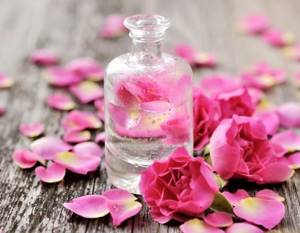
Rose oil has a very good effect on dry and sensitive skin of the face, hands and the whole body; it is very often included in cosmetics for “adult” skin. This oil is involved in improving the elasticity and regeneration of the epidermis, combats irritation of the mucous membranes, which is why rose essential oil is so often used in the production of intimate hygiene products.
Cedar essential oil
This essential oil is made from nuts and cedar seeds, and has a very light, warm, one might say, sunny aroma. In aromatherapy it is considered a scent of good mood. It is widely used in restorative massages and for aromatizing the room, especially in the cold season.
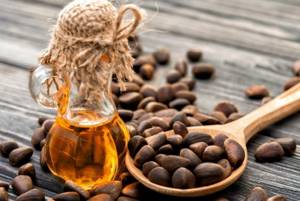
Due to its antiseptic properties, cedar oil is used in cosmetic products to care for irritated and “damaged” skin, accelerating its healing and regeneration. As for baths or refreshing the room with cedar essential oil, it is better to do this in the first half of the day, as the effect will be tonic.
Additional groups
Woody
Based on the name, it is clear that they are extracted from wood. These are cedar, incense, camphor, benzoin. Essential oils of this group have a thick, viscous odor. Have the following properties:
- Stabilizes pulse and improves blood circulation.
- Lower blood pressure.
- They have a calming, relaxing effect.
- They are actively used in the care of dry skin and have a moisturizing effect.
Herbal
This group consists of sage, tea tree, eucalyptus, bay, basil, and thyme. Most often used in medicine. They don't always have a pleasant smell, but they are very useful.
- Used in the provision of medical care, especially instead of antiseptic drugs.
- They have anti-inflammatory properties and are used for compresses.
- Often used to boost immunity during illness. Inhalations are especially useful.
Spicy
Oils of this group have very bright, pungent odors. Made from cinnamon, pepper, nutmeg, ginger, cardamom, cloves. Have the following properties:
- They have a stimulating effect on the nervous system, people use them to cheer up and activate the brain.
- They lift your spirits and help you cope with depression.
- They have a warming effect and are used to treat joints.
Refreshing
This group includes oils from mint, pine, and cypress. Applications:
- used instead of antiseptic drugs;
- instead of an air freshener;
- have a positive effect on the gastrointestinal tract.
Jasmine essential oil
Jasmine essential oil is one of the most popular in both cosmetology and herbal medicine. It is used for baths and used in massage, aroma lamps and compresses. The smell of jasmine flowers is associated with harmony and balance, and is endowed with aphrodisiac properties. Jasmine oil will help get rid of bad mood and brighten your day.
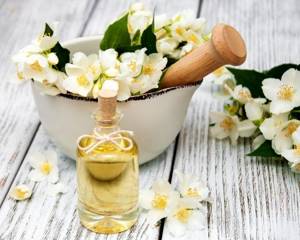
Jasmine essential oil as a cosmetic product is quite suitable for almost any skin type. It relieves irritation well, fights inflammation and dry skin. This oil is also included in creams for various scars. And if you want to get rid of stress or fatigue in the evening, take a bath with two or three drops of jasmine oil, this will not only improve your mood, but also make your skin happy.
Healing properties of essential oils
Nowadays, the sense of smell is not given much importance. However, it plays a much larger role than many of us think. At the beginning of the twentieth century, it was suggested that trees and grasses secrete special substances (atmovitamins), which are absorbed by the lungs and are catalysts for biochemical processes and metabolism. Over time, the correctness of this assumption was confirmed.
Atmovitamins include air ions, ozone, and volatile phytoorganic substances (essential oils), which are perceived by humans in the form of odors. It has been established that there are two mechanisms for the perception of odors - associative and reflex. The first is based on remembering the relationship of smells with familiar ideas and affects mainly the psycho-emotional sphere of a person. The second is with the influence of odorous substances on olfactory receptor cells in the biologically active points of the nasal concha, associated with the olfactory analyzer, the hypothalamus and the limbic system.
These highly active systems are connected to other vital areas of the brain that regulate heart rate, blood pressure, breathing rhythm and other vital body functions. Moreover, the olfactory reflex is specific to each aroma. The smell must exactly match the receptor. This is why synthetic odorants are much less effective compared to natural ones: they can only evoke appropriate associations, but the reflex component is often absent.
This is due to the complex multicomponent structure of natural aromatic substances, which cannot be recreated in the laboratory. However, a person’s reflex reaction to a smell affects both the psycho-emotional sphere (the smell gives rise to an image) and the physiological one. Moreover, the minimum concentration of an odorous substance in the inhaled air causes very noticeable reactions in the body. A few drops of jasmine essential oil in a vaporizer stimulates brain activity no less than coffee. Eucalyptus - improves breathing, cleanses the nasopharynx.
To become a qualified aromatherapy specialist, you need careful preparation, knowledge of anatomy, physiology, and the therapeutic effects of more than one hundred essential oils. However, everyone can use essential oils for preventive purposes, to increase vitality, performance, and relieve fatigue and stress.
Application of essential oils
The founder of modern clinical medicine, the great ancient Greek physician Hippocrates, believed that the path to health was “a daily aromatic bath and massage with incense.” And really, what could be better than water treatments for well-being and massage for a tired body? What if they are also “aromatic” and with “incense”?
Millennia have passed since people first began to extract aromatic substances from plants, use them in everyday life and in religious rituals, and use them for medical and cosmetic purposes. The experience of obtaining and using aromatic substances gradually expanded, and it became clear that each of them, in addition to its unique smell, has its own special effect on the human body.
Today, “aroma concentrates in liquid form”—essential oils are widely used in perfumery, cosmetics, and medicine. These oils are volatile liquids of complex composition, the main components of which are natural hydrocarbons (terpenes). Essential oils are usually obtained by steam distillation of flowers, leaves or plant roots.
Vegetable essential oils are not just pleasant aromas, they are biologically active substances. Their effect on the body is very wide - from a beneficial effect on the psyche, mood, mental and physical performance to an effective effect on the course of a wide variety of diseases and pathological processes.
A special medical direction - aromatherapy is defined as the science and art of healing, prevention and treatment using plant essences - essential oils. And the main feature of aromatherapy is the naturalness and simplicity of the method, the gentle effect of aromatic substances, and the possibility of using essential oils for self-medication.
Essential oils can enter the body through the mucous membranes of the respiratory tract, through the skin and the gastrointestinal tract. Hence, an important advantage of essential oils is the variety of ways of their administration. Essential oils can simply be inhaled (cold and hot inhalations, aromatherapy), but can also be used for rubbing and compresses, in rinses and for oral administration.
All these qualities of essential oils are widely used in MIRRA products - creams and balms, bath products.
Here are briefly some ways to use essential oils (or aroma compositions created on their basis).
Aroma burner. Pour some water into the evaporation container and add essential oil at the rate of 2 drops per 5 square meters. m of room area.
Cold inhalations. Inhale the aroma of the oil for 5 - 7 minutes directly from the bottle or after applying the oil to a cloth.
Inhalations are hot. Add 3-5 drops of essential oil to a saucepan or bowl of hot water, cover your head with a towel and inhale the steam deeply for 5-7 minutes.
Baths and tubs. Baths can be shared, sitz, or foot. They can be hot or warm (place 5 - 7 drops of essential oil on a piece of sugar or mix with 1 tablespoon of salt and then stir in water). The duration of the bath is 10 - 15 minutes.
Compresses. Add 3 to 5 drops of essential oil to warm water (1 - 2 glasses), moisten a cotton cloth, squeeze lightly and apply to the sore spot for 30 minutes; Place plastic film (or oilcloth) on top of the compressed area. Cold compresses are used for injuries, bruises, sprains, hot compresses for chronic diseases.
Rubbing. Mix 2 - 3 drops of essential oil in 5 - 7 g of vegetable oil, apply to the sore spot and rub vigorously into the skin.
Massage. Prepare the mixture as for rubbing and use for massage of the spine, limbs, and abdomen.
Rinse. 1 - 2 drops of essential oil per 1/2 cup of warm water. For inflammatory diseases of the oral mucosa, chronic tonsillitis, rinse 3-4 times a day.
Ingestion. Place 1 - 2 drops of essential oil on a piece of sugar or stir with honey (1 teaspoon). Frequency of administration - from 1 to 3 times a day. Essential oils can be taken with warm water or herbal tea. Before taking essential oil internally, you should consult your doctor.
The most important property of essential oils is their effect on the psyche, on the central nervous system, and their general regulatory effect on the entire body. Some of the essential oils have a tonic, stimulating effect, relieve fatigue and increase performance. Others have an adaptogenic effect, helping the body to better adapt to changing environmental conditions. Still others relieve overstimulation, calm, and improve sleep.
Almost all essential oils have an anti-inflammatory effect to one degree or another; many of them have antiseptic, bactericidal, antiviral effects. Some essential oils have an analgesic, antipyretic, drainage effect, are useful for disorders of the cardiovascular system and gastrointestinal tract, and are effective for sexual problems.
MIRRA uses about 30 of the most effective essential oils in its products. The most suitable oils from grape seeds, jojoba, milk thistle and others are used as their “carriers” in creams, balms, and massage oils.
In conclusion, a few words about the effect of essential oils on the skin. The fact that such an action is very effective is well known from centuries of experience in the use of aromatic substances in cosmetology and dermatology. The effectiveness of essential oils is ensured by their bioavailability - the ability to penetrate deeply into the skin, directly affect the cells of its various layers, blood and lymphatic capillaries, and metabolism. That is why essential oils help eliminate functional disorders (“stale” complexion), help with local disorders (striae, bruises, swelling) and general disorders (eczema, neurodermatitis). Due to the variety of positive effects of essential oils, their therapeutic effects are also varied. Therefore, you should not think that MIRRALGIN balm only reduces pain, and ANTI-CELLULITE balm is useful only for cellulite.
At the same time, certain essential oils also have a predominant therapeutic effect for a particular pathology. Therefore, their presence in a particular product makes that product useful for use in appropriate cases. Essential oils are an effective means of influencing the body. With their help you can often achieve amazing results. However, some precautions are also necessary.
So, at the beginning of using oils, you need to determine your attitude towards the essential oil by smell, especially when used for inhalation (it is better not to use oil whose aroma causes discomfort).
Individual intolerance to the oil is occasionally noted; caution is required if you are prone to allergic reactions.
For kidney diseases, it is not recommended to use essential oils of fir and pine. You should not use anise and geranium oils for a long time, or combine the intake of orange and lemon oils with prolonged exposure to the sun. In case of increased excitability, it is not recommended to take essential oils of clove and sage; in case of varicose veins, thrombophlebitis, basil oil is not recommended. If you have bronchial asthma or pregnancy, essential oils should be taken with caution. In young children, the skin is hypersensitive to mint oil.
Contraindications for taking scented baths are active forms of tuberculosis, severe circulatory failure, malignant tumors.
It is better to start using essential oils with minimal dosages. You should not use the same oil for a long time (more than 3 - 4 weeks). Although essential oils are easy to use at home, it is best to consult with your family doctor before starting to use them.
For each person, you can choose an essential oil or a composition of oils that will have the most beneficial effect.
L. Conde, Candidate of Medical Sciences
Aromatherapy
Aromatherapy is the science and art of treating diseases with plant essential oils, the healing power of which is diverse and is entirely aimed at healing and harmonizing the physical and field body. All essential oils - if the rules of use are strictly followed - do not have any negative side effects and do not cause imbalance in physiological processes in the body. Any essential oil has a complex effect and helps with various diseases of the physical and psycho-emotional sphere.
The antiseptic ability of essential oils is associated with the presence of phytoncides - antimicrobial substances with antibacterial, antifungal and antiviral properties. Aggressiveness towards fungal cells is combined with the almost complete harmlessness of essential oils for the human body. These properties significantly distinguish essential oils from antibiotics and determine the advantages of aromatherapy: low toxicity and the possibility of long-term use without significant unwanted side effects. It is important to note that the antiseptic ability of essential oils does not decrease over time, as microorganisms do not develop resistance. This is due to the fact that essential oils have a destructive effect on the membranes of microorganisms, reducing their permeability and thereby reducing the respiration activity of microbes, which leads to their death.
Aromatherapy cannot replace classical medicine for serious illnesses, but the use of essential oils can simplify treatment with medications. Aromatherapy is a wonderful, wise natural method of healing for many physical and mental ailments. Its main goal is to restore the balance of body and spirit, as well as maintain and stimulate the body’s natural defense reactions.
Entire treatises have been written about the healing properties of essential oils such as tea tree or lavender, and myrrh oil has been used since ancient times. Until recently, few people knew about the essential oil of Monarda fistula, and our Company is proud that it is practically the only one who actively uses this unique oil. Professor V.V. conducted a lot of research on the properties of monarda as a mono-oil and its compositions with other oils with a group of colleagues. Nikolaevsky. Interesting data were obtained by Academician I.N. Blokhina, who worked closely with our Company. A parallel study of the bactericidal properties of essential oils of sage, monarda, and tea tree showed their different effectiveness against the following pathogenic and opportunistic microorganisms isolated from patients with lesions of the skin, respiratory tract and intestines: staphylococcus, Escherichia coli, Klebsiella, streptococcus, Pseudomonas aeruginosa, mushrooms Monarda EO turned out to be the most effective; it completely suppressed the growth of all test cultures, except for Pseudomonas aeruginosa, but a significant inhibition of the growth of this culture was observed.
The research center of the MIRRA Company conducted research on the antiviral properties of essential oils of sage, monarda, tea tree, lavender and mint. Electron microscopy, model virus systems (bacteriophages) and standard assessment methods were used. It has been shown that maximum antiviral activity is characteristic of a microemulsion of essential oils of monarda and tea tree. Sage and mint occupy a middle position, while lavender has minimal impact on viral particles.
The results obtained show that the action of monarda essential oil is aimed at the membrane apparatus of bacteriophages, the destruction of which leads to inactivation of the virus.
Thus, monarda essential oil is active against both bacteria, fungi and viruses.
All these materials and scientific research were used in the design of the MIRRA phytosystem preparations.
S.A. Chubatova
*When using article materials, a hyperlink to the source is required
Chamomile essential oil
Another wonderful scent of calm and tranquility. Chamomile essential oil will help us find harmony both physically and emotionally. It is especially useful in cases where it is necessary to overcome stress or strong excitement. In herbal medicine, it is widely used as a natural remedy for insomnia or restless sleep.
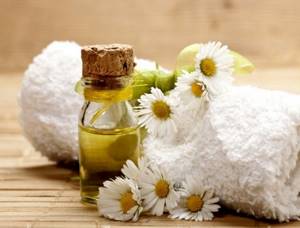
A special place in the list of advantages of this essential oil is occupied by its anti-inflammatory properties, which have a beneficial effect on both internal and external foci of inflammation. By adding chamomile oil to massage creams, we get a powerful remedy for pain in muscles and joints. Due to its mild effect, this oil is suitable for aromatherapy and baths for children.
Lavender essential oil
A symbol of calm and harmony in herbal medicine is the aroma of lavender flower essential oil. This is more of an evening oil - it helps us relax and gives us a good night's sleep. Lavender aromatization of the room or “light” compresses based on this oil help in reducing high blood pressure, regulate heart rate, and it is also used for increased heart rate, but remember that this is not a medicine.
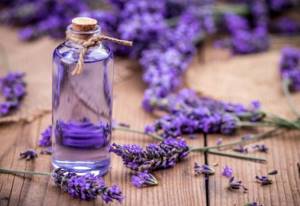
In cosmetology, lavender oil occupies an honorable and fully deserved place on the list of leaders. It stimulates skin regeneration very well. Cosmetics containing this essential oil will be the optimal solution for caring for sensitive or irritated skin. Try taking a bath with a few drops of lavender in the evening - it will pleasantly please both you and your skin.
Classification of fragrances according to medicinal effect
After you have purchased the essential oil, you need to find the instructions for use that come with the kit. Or you can turn to specialized literature - textbooks on pharmacognosy and botany to determine the difference in the therapeutic effects of a particular oil.
Initially, it is important to set the right goal for yourself - to tone or relax, reduce pain or fight fungi and viruses.
Essential oils properties and applications (table).
| Name of essential oil | Healing properties |
| Bergamot | Bactericidal and antiseptic effect, reduces fever, relieves pain, calms heart rate, tones the gastrointestinal tract, soothes and deodorizes the skin. |
| Gvozdichnoe | Accelerates regenerative processes in the skin, making it more elastic and smooth. It has a beneficial effect on the gastrointestinal tract and improves cognitive functions of the brain. |
| Geranova | It has a general tonic effect, takes good care of different skin types, and improves mood). |
| Spruce | An excellent skin care product, nourishes and strengthens hair follicles, and has a medicinal effect for lung diseases. |
| Lavender | Relieves inflammation and eliminates skin rashes, has a fungicidal effect, and fights acne. Relieves dandruff rashes. |
| Mint | Causes a good sanitizing effect in the oral cavity, killing pathogenic bacteria there. It has a beneficial effect on the skin, improving blood circulation in the capillaries. Calms. |
| Rosemary | It is characterized by a general analgesic and anti-allergenic effect. Improves motility of the stomach and intestines. Relieves various skin rashes. |
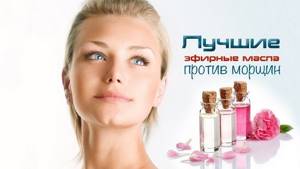
aromatic mixtures are actively used in cosmetology to maintain healthy skin and hair
Lemongrass essential oil
If we talk about the brightest essential oils, then I really want to highlight lemongrass oil. This rather modest plant - lemongrass from the perennial cereal family, has a magical aroma that seems to have collected all the notes of citrus, and excellent health benefits. This oil can be called an aphrodisiac; it stimulates and activates our positive emotions, adding freshness to us in every sense of the word.
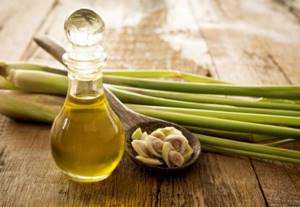
Lemongrass essential oil is very often used for massage - just a few drops added to the base “carrier”, that is, to your cream or body lotion, will greatly enhance the tonic and healing effect of the procedure. This oil will help remove lactic acid from muscle tissue, stimulate good blood circulation and have a lymphatic drainage effect, which, in turn, will make our skin more toned, this is especially true for those who successfully fight fat deposits in the abdominal and side areas.
So, we told you about a dozen essential oils, discussed their properties and application features a little, and gave them a brief description. But let me remind you once again that no matter what beneficial properties such drugs may have, they are not medicinal! And don’t forget about allergic reactions - before each “new” oil that you want to use for inhalation, massage, as an enhancement of cosmetics or in herbal medicine, be sure to make sure that you are not allergic to this substance - rub a drop of the selected oil onto the inner skin parts of the elbow and wait until about half an hour has passed. The absence of redness will confirm its safety for you personally. After all, the most important thing is health! I hope you found it interesting and useful. The base for “cocktails” of essential oils can be your shower gel for taking a bath, body cream for massages and mineral water for inhalation and aromatization of rooms.
Inhalation
A common, generally accepted and popular method of treating colds is inhalation. This procedure improves the drainage function of the body, reduces the inflammatory process, reduces swelling, and improves blood flow to the mucous membrane.
Preventive inhalations have the following properties:
- stimulation of local and general immunity;
- improvement of psycho-emotional state;
- stimulation of mental activity;
- lifting your spirits;
- antibacterial, antiviral effects;
- acceleration of regeneration.

Hot inhalation with essential oil is an effective remedy for colds
There are two types of inhalations:
- Cold, when the essential oil is dripped onto the corner of a pillow, napkin, fabric, and the inhalation process itself is carried out by inhaling the released aroma. The duration of the procedure is no more than 5 minutes.
- Hot, using a special device - an inhaler. A few drops of the selected essential oil are dripped into a special container filled with hot water, after which you need to inhale the released steam, covering yourself with a towel and closing your eyes.
Advice! If a child refuses to perform the hot inhalation procedure, drop 1-2 drops of essential oil on the corner of his pillow.
One of the methods of cold inhalation, especially relevant during epidemics of various colds, is the use of an aroma pendant made of porous clay.
One of the methods of cold inhalation, especially relevant during epidemics of various colds, is the use of an aroma pendant made of porous clay
